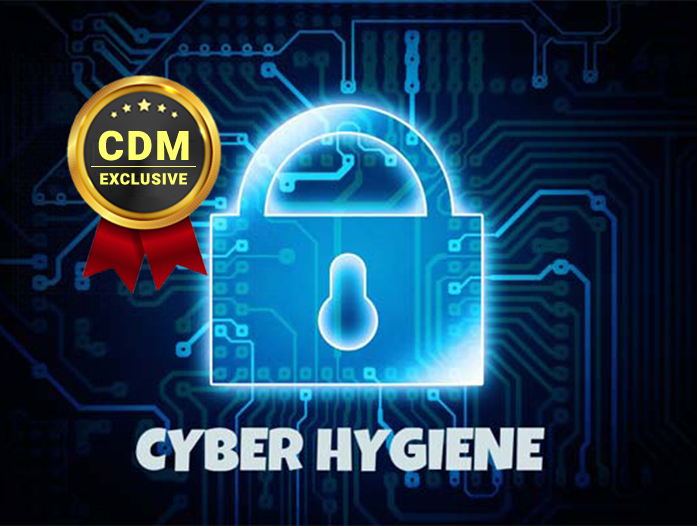- ChatGPT's GPT-4 model retires soon - some users can continue to access it
- The next big tech showdown is happening on your wrist - and you shouldn't sleep on it
- I've relied on this electric screwdriver for years, and it just got a big upgrade (plus it's on sale)
- Hands-On Labs: The Key to Accelerating CMMC 2.0 Compliance
- Groundcover grows funding for eBPF-based observability tech
Why We Care About Cybersecurity Hygiene

By James Opiyo, Senior Consultant Security Strategy, Kinetic By Windstream
Maintaining good cybersecurity hygiene habits is just as important as maintaining good personal hygiene habits. We must maintain high cybersecurity standards to protect our digital health from some common cyber threats.
Common threats to our digital health
- Malicious software (malwares) designed to steal information and or cause damage to our connected devices.
- Viruses that infect connected devices and then spread to others while giving cybercriminals access to those devices.
- Ransomware malware that kidnaps a connected device and prevents an authorized user from accessing the affected device until a ransom (usually cash) is paid.
- Phishing scam where cybercriminals attempt to steal sensitive data (SSN, Credit Card numbers etc.) using deceptive electronic messages e.g. email, text messages, pop-up windows etc. They use fake websites, emails, etc. and lure users to disclose sensitive information. They may, for example, send a link masked to look like your bank’s legitimate web address and ask you to click on it and login to your bank. This will give them access to your real login credentials which they can use to log into your real bank account and steal money, personal information etc.
Cybersecurity hygiene habits to help mitigate common threats
- Install reputable antimalware & antivirus software to prevent malware attacks.
- Create complex passwords that cannot be easily guessed. For example, using combinations of at least 12 letters, numbers, and special characters.
- Secure your Wi-Fi network with a strong password and router name. Turn off remote management of the router and ensure that the router offers WPA2 or WPA3 encryption to maintain the highest level of privacy of information sent via your network.
- Change the manufacturer default passwords for all your smart devices e.g. smart thermostat, smart doorbells, smart locks, etc. A hacker can easily download a smart device’s user manual and get its default password.
- Update software and apps regularly to maintain latest version of software patches that fix security flaws.
- Permanently delete sensitive data from your computer and keep your hard drive clean.
- Never click on a link, open pop-up, etc. from unknown source.
Conclusion
In summary, we should include installing reputable antimalware software, creating strong passwords, keeping our connected devices clean, and always be suspicious of request for information coming from unknown sources as paramount steps to keeping good cybersecurity hygiene habits.
About the Author
James Opiyo is a Senior Consultant for Security Strategy at Kinetic by Windstream. Kinetic provides premium broadband, entertainment, and security services through an enhanced fiber network and 5G fixed wireless service to consumers and small and midsize businesses primarily in rural areas in 18 states.
Email: james.opiyo@windstream.com

